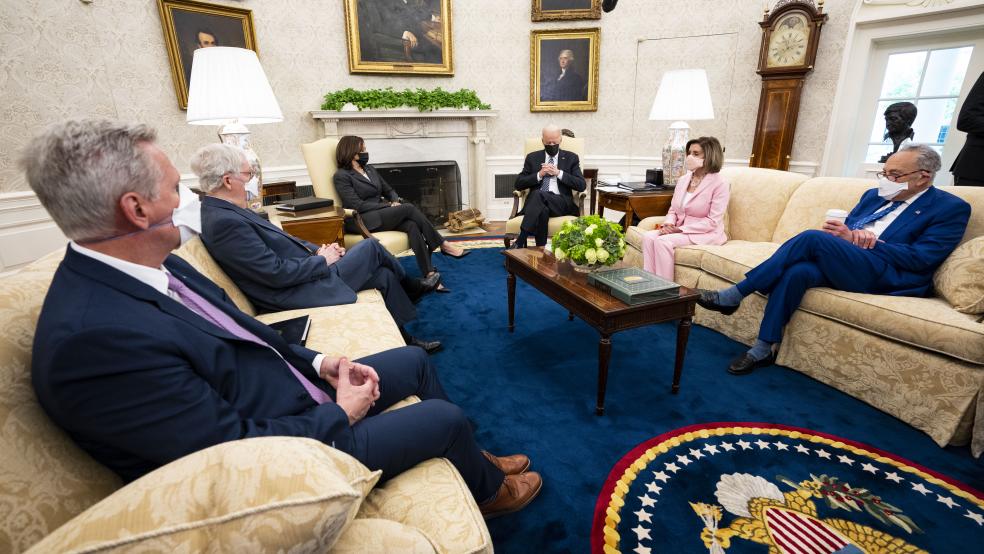The nation’s infrastructure is crumbling and so are the Washington talks about fixing it.
CNN’s Phil Mattingly and Lauren Fox report that the talks are “on the brink of falling apart completely” after Republicans balked at a scaled-back proposal that Biden’s negotiators submitted on Friday, with a price tag of $1.7 trillion, down from an original $2.25 trillion. Republicans said that the offer was still too large to pass on a bipartisan basis and they criticized some of the White House changes as accounting gimmicks.
Transportation Secretary Pete Buttigieg told CNN on Monday that the two sides have moved closer, but “there is still a lot of daylight between us.” The two sides are more than a trillion dollars apart, don’t agree on how to pay for whatever they spend — and they still can’t even settle on a definition of infrastructure.
“We, Republicans, tend to define infrastructure in terms of roads, bridges, seaports and airports and broadband. The Democratic definition seems to include social programs that have never been considered part of core infrastructure,” Sen. Susan Collins (R-ME) told ABC’s “This Week” on Sunday. “I was glad that the president put a counteroffer on the table, but if you look closely at it, what he's proposing to do is move a lot of the spending to a bill that's already on the Senate floor, the Endless Frontier's bill.”
So, yeah, a lot of daylight.
The White House proposal reduced the amount requested for roads, bridges and physical infrastructure projects from $159 billion to $120 billion, still well above the $48 billion Republicans had proposed. It also cut funding for broadband to the GOP’s proposed level of $65 billion and proposed shifting investments in research and development, supply chains and manufacturing to other legislation, as Collins mentioned.
The Biden administration also said that the Republican offer was no more than $225 billion “above current levels Congress has traditionally funded” and laid out nine areas Republicans would need to include or spend more on, including $400 billion to support caregivers and home health workers. And it still sought to pay for the new spending via tax increases, which Republicans have called a nonstarter.
What’s next: White House Press Secretary Jen Psaki said Monday that the ball was now in the GOP’s court. “We’re eager to see their proposal and see what they have to offer,” she said, “and I think it doesn’t take anything more than simple math to note that if we came down by $550 billion and they came up by $50 billion, they have a ways more to go.”
The White House reportedly isn’t certain that Republicans will make a counteroffer but hopes to have a meeting as soon as Wednesday if one does come.
Biden’s Memorial Day deadline is likely to pass without any deal, or major progress toward one. The talks could continue, but that may depend on what happens this week. "He wants a deal. He wants it soon, but if there's meaningful negotiations taking place in a bipartisan manner, he's willing to let that play out," Cedric Richmond, a White House senior adviser, told CNN, referring to Biden, on Sunday. "But again, he will not let inaction be the answer. And when he gets to the point where it looks like that is inevitable, you'll see him change course."
Some Democratic lawmakers continue to press the White House to move ahead without Republicans. Doing so would require Biden to have the support of almost every House Democrat and all 50 Senate Democrats.





